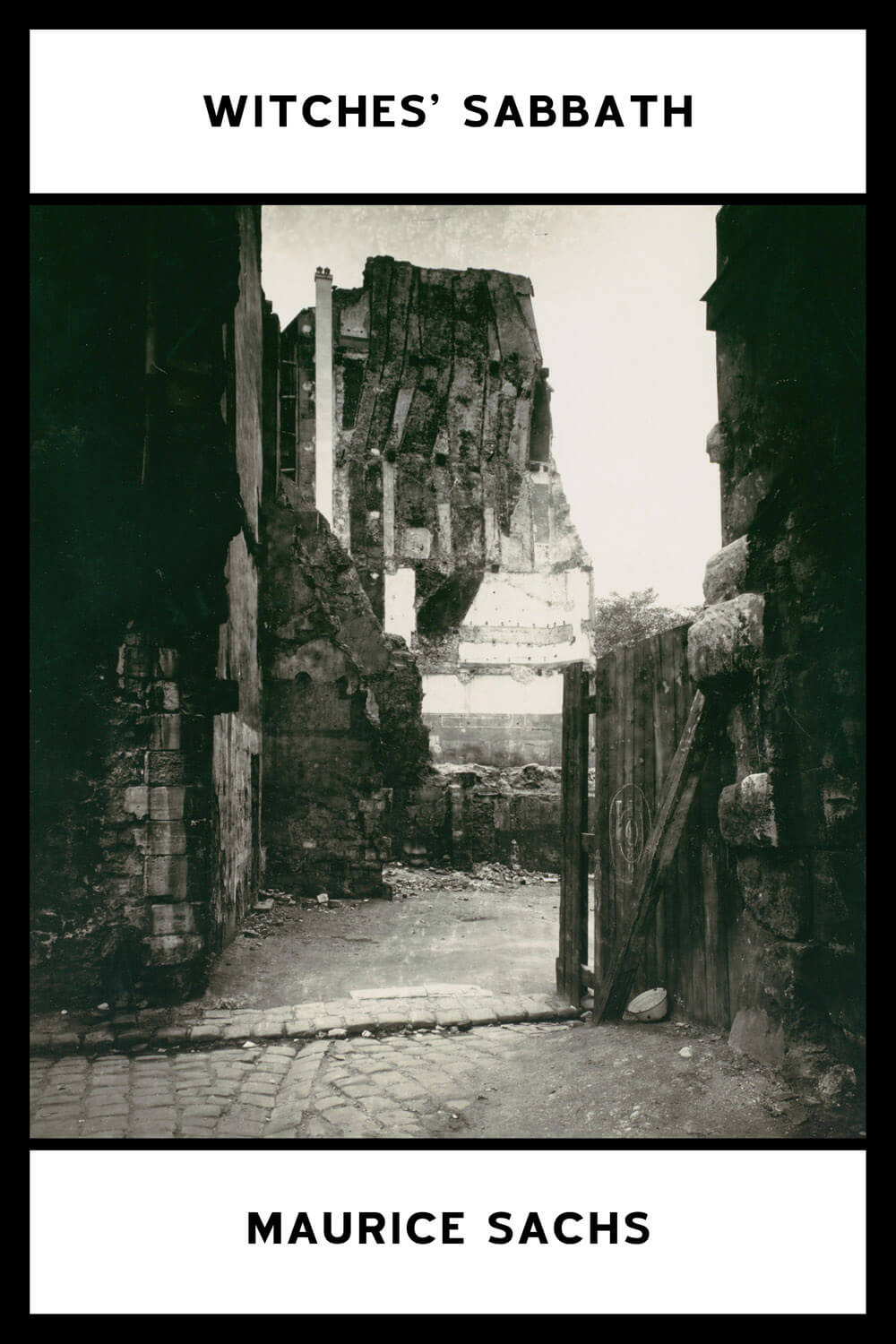
Maurice Sachs
●
Spurl Editions
Witches’ Sabbath
Pages
276Format
PaperbackRelease date
March 2020Publisher
Spurl EditionsWeight
11 ozSize
4.9 x 0.7 x 7.4 "
Witches' Sabbath is the remarkable autobiographical chronicle of French author Maurice Sachs (1906–1945). To Sachs, the work was "a statement of account, a moral memo. Or should I say immoral?" He recounts how, as a young man, he befriended Jean Cocteau and Coco Chanel, both of whom he stole from, as he stole from many others in his life (Sachs would later propose writing a book entitled Confessions of a Thief).
He tells of when, in 1925, he converted to Catholicism and entered a seminary, only to be expelled because of his homosexuality. He tells of when he drifted through America, of when he nearly drank himself to death, of his many failed love affairs.
In addition to being a compelling, honest portrait of a unique character, Witches' Sabbath is also notable for its engagement with literature. Every period of Sachs' life is marked by his dialogue with living and dead authors; Charles Baudelaire, Marcel Proust, Stendhal, all are featured. Thanks to his lifelong obsession with literature, Sachs developed a all his own: peppered with keen, acerbic portraits of his contemporaries, sometimes picaresque, introspective and often full of irony.
He tells of when, in 1925, he converted to Catholicism and entered a seminary, only to be expelled because of his homosexuality. He tells of when he drifted through America, of when he nearly drank himself to death, of his many failed love affairs.
In addition to being a compelling, honest portrait of a unique character, Witches' Sabbath is also notable for its engagement with literature. Every period of Sachs' life is marked by his dialogue with living and dead authors; Charles Baudelaire, Marcel Proust, Stendhal, all are featured. Thanks to his lifelong obsession with literature, Sachs developed a all his own: peppered with keen, acerbic portraits of his contemporaries, sometimes picaresque, introspective and often full of irony.



